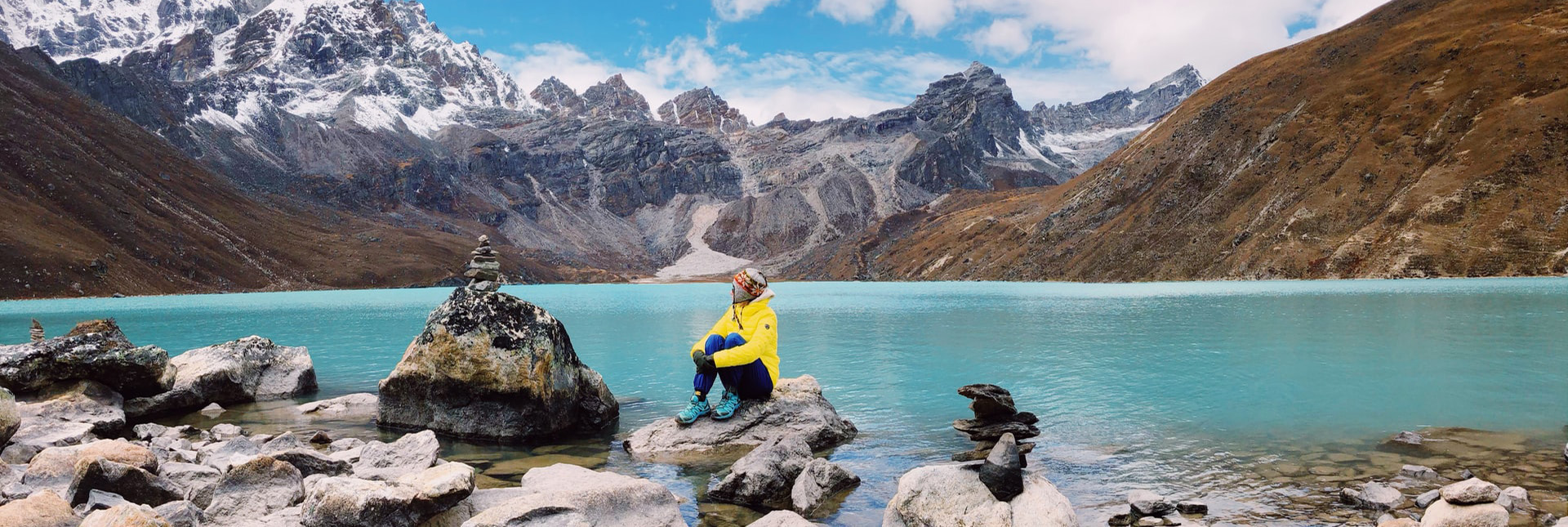9 April, 2021 | Reccy Guide

The Everest Base Camp Trek is indeed one of those classic Himalayan adventures that remain on every trekker’s bucket list. Apart from the Annapurna region’s two most popular and well-known treks- the Annapurna Base Camp Trek and the Annapurna Circuit Trek, it is most frequented by travelers across the globe. One of the reasons is the sheer awe that the name Everest evokes! It has a rare appeal to the trekkers’ and hikers’ hearts that can be hardly compared with any other.
The Everest Base Camp and Gokyo Lakes Trek have emerged as a trendy alternative to the classic treks mentioned above. Apart from setting foot on the base camp of the world’s loftiest mountain, you can also view the spectacular high-altitude lakes.
But you need to put up an itinerary if you want to embark on this moderately challenging adventure. We often miss out on much essential information and nitty-gritty when making arrangements for our next trekking expedition. Therefore, developing a plan beforehand is imperative. Personal research plays a key role before such an expedition.
So let’s focus on some of the things that experts tell us about the Everest Base Camp Trek. When it comes to such uphill challenges, expert opinion is critical.

We believe that the following tips would help you navigate your next expedition to the EBC or the Everest Three Passes Trek with maximum comfort.
According to every hiking expert, the trek to the Everest Base Camp is not highly technical, and hence you don’t need a mandatory specialized climbing experience. However, being physically fit and having excellent high-altitude conditioning, adequate strength, and endurance are crucial to completing this trek successfully.
These kinds of high-altitude treks that take you significantly above 4000 meters require your body to withstand adverse weather conditions, low oxygen levels, and reduced atmospheric pressures. If you don’t put in adequate training beforehand, you are at constant risk of putting yourself in harm’s way. This will not only mar your entire trekking experience but also spoil the positive vibes of your team.
Apart from regular cardiovascular training, doing intense physical exercise for at least six months is a necessity. You can even personalize your training to mimic your future trek. You can do this by adding weights inside your backpack and then carrying the same while walking up a hill or a Stairmaster a few times each week.
Hiking experts can’t stress this point enough! Even if you are adequately fit physically, you might encounter mental roadblocks across the trails that could compel you to quit your trek midway. Apart from difficult conditions across the trails, you will be able to access only basic amenities as per your accommodation; sanitation, hygiene, and food are concerned. You should not expect a lavish journey. You have to stay in humble tea-houses, make yourself content with a life less dependent on electricity, eat basic yet sumptuous meals and make peace with dirt, bugs, and outdoor toilets!
Stay prepared mentally for the sudden shift in your settings and try to embrace them. If that is difficult, try looking at the bigger picture and the ultimate goal you are to achieve when you embark on the Everest Base Camp Trek or the Everest Three Passes Trek.

When you are braving the loftiest Himalayan heights during your Everest Base Camp Trek, you will encounter headaches. These headaches and occasional swellings are primarily due to reduced pressure and a shortage of body fluids. While constant hydration could prove a relaxing solution for many, others can depend on anti-inflammatory medicines like Ibuprofen to relieve the swelling and reduce your internal pressures.
You need to make sure that you manage these headaches efficiently and not allow the situation to aggravate. If the situation gets worse, it could even compel you to abandon your trek midway!
Though every hiking expert recommends keeping your backpacks light, they also emphasize packing for all eventualities. Besides keeping lightweight and heavy clothes, jackets, and inners, you need to carry every essential permit, photo, visas that could come in handy in a tricky situation.
Carry first-aid kits as well as hygiene and healthcare essentials for your journey. The water quality is rather dubious, and depending on packaged drinking water is an overly expensive choice. Carrying water purification tablets and refillable vessels could also prove to be helpful.
Since the EBC Trek is not a purely technical climb, it does not require very sophisticated gear. But a sturdy and well-graded pair of trekking boots, hiking poles, a quality down jacket, and a couple of sunglasses will suffice. You might want to carry lamplights operating on batteries as well to light up scantily-lit areas.
When you are trekking across high altitudes, your body fluids tend to dry quickly. Hence, you need to replenish them fast to prevent inviting any discomfort or altitude sicknesses of variable magnitude. Keep drinking four to five liters of water each day throughout the trek. For many experienced campaigners, water has proved to be the best friend in the mountains and egged them to complete their expeditions!
With these expert hiking tips from experienced campaigners, you should expect a comfortable EBC Trek. Embrace the spectacular details of the Himalayan wonders while staying safe.